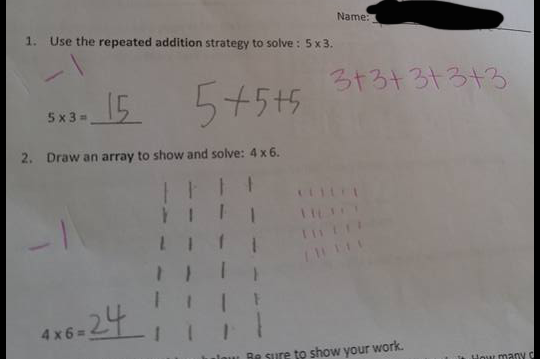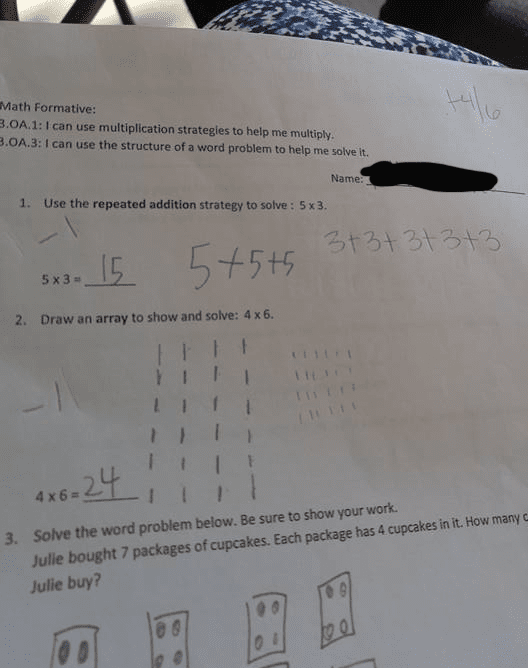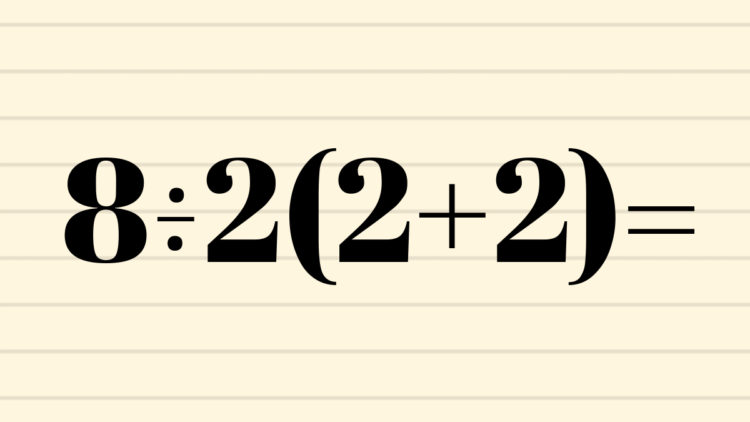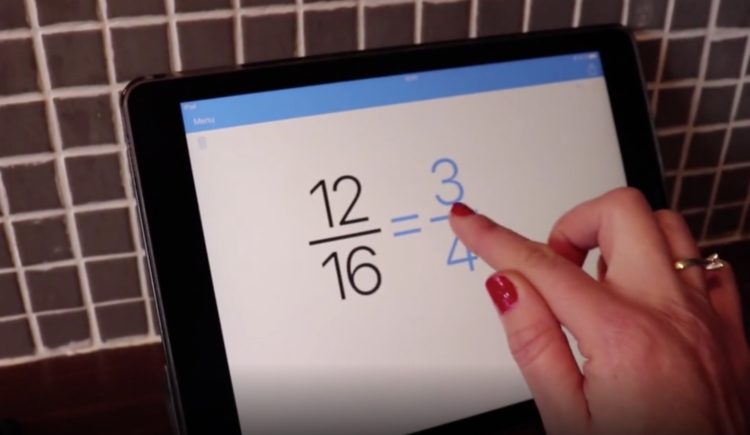Kid’s Seemingly Correct ‘Wrong’ Answer On A Math Test Causes The Internet Lost Its Mind
My kids are too young for me to have any experience with “Common Core” and this new — what I can only describe as funny — math. But, let me tell you I am joining my internet brothers and sisters in going nuts over this kid’s math test.
The question: What is 5 x 3? and it also asks that the student show his/her work using the “repeated addition strategy,” which the student shows as 5+5+5, but the teacher points out should be 3+3+3+3+3.
Can’t we all just agree it’s 15? I’m going to kick this back old-school and say I’m pretty sure no matter how you slice a pie, it’s still pie, right? Or have we forgotten the pizza problem of 2016?
Maybe this is a sign that I’m in trouble when my kids start real school, but I just have to ask — what’s the point? My husband once asked this question in first grade, and it aggravated the teacher so much, she called his mother. But, isn’t this the right question?

The answer is 15. Who cares how we got there? Does it really matter if a child approaches this problem as 5+5+5 vs. 3+3+3+3+3? Shouldn’t we be using critical and creative thinking to achieve the right answers?
Many commenters were also none too pleased with the teacher’s grading system. One commenter on imgur — where the photo was first shared last year and has since been viewed more than 7 million times — went as far as to say, “there aren’t enough curse words in the English language for me to express how I feel about this.”
RELATED: Try This Simple Trick To Make Multiplication Easier
And, while I have to agree, not everyone does. A lot of commenters were also quick to back the teacher. One saying, “5×3 means 5 times of three and 3×5 means 3 times of five. That’s how it works.”

Another commenter explained why this makes sense from a process perspective (which, clearly, is part of what the teacher was trying to teach — not just “can you get the right answer?” but “can you follow a certain process to get there?”):
“5y = 5 times y = y + y + y + y + y, so if y = 3, then 5(3) = 5 x 3 = 3 + 3 + 3 + 3 + 3,” imgur user juggahnic explained.
One thing we can all agree on is: Math is hard. But, I contend it can also be fun. (I know, I know … but hear me out.) If multiplication, division, subtraction and addition remain as simple as possible maybe we can inspire future engineers and scientists. Maybe we can teach kids to experiment and think outside the box.
If we start marking right answers wrong, we might discourage a kid too early. If 5×3 is 15 (but only if you got there the right way), then gosh darn it, are we going to lose them before they even get to the really challenging math like calculus?







